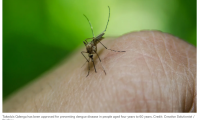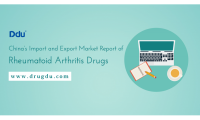-
NICE questions value and efficacy of five Covid-19 drugs with rejection
- Source: drugdu
- 148
- March 17, 2023
-
NICE approves funding for Novartis gene therapy
- Source: drugdu
- 126
- March 17, 2023
-
Brazil’s ANVISA approves Takeda’s dengue vaccine Qdenga
- Source: drugdu
- 139
- March 17, 2023
-
China’s NMPA accepts GSK’s drug application review for Nucala to treat SEA
- Source: drugdu
- 128
- March 16, 2023
-
PBD Biotech reveals vital update to TB test
- Source: drugdu
- 121
- March 16, 2023
-
An overview of COVID-19-associated neurological complications in children
- Source: drugdu
- 291
- March 15, 2023
-
What Mutations of SARS-CoV-2 are Causing Concern?
- Source: https://www.news-medical.net/health/What-Mutations-of-SARS-CoV-2-are-Causing-Concern.aspx
- 452
- April 5, 2022
-
Early data shows CanSinoBIO’s inhaled COVID-19 vaccine triggers immune response
- Source: drugdu
- 962
- September 1, 2021
-
China’s Import and Export Market Report of Vitamins
- Source: Ddu
- 49,021
- August 26, 2021
-
China’s Import and Export Market Report of Rheumatoid Arthritis Drugs
- Source: Ddu
- 3,910
- August 26, 2021
your submission has already been received.
OK
Subscribe
Please enter a valid Email address!
Submit
The most relevant industry news & insight will be sent to you every two weeks.













